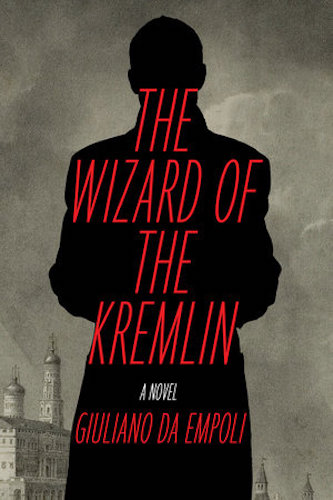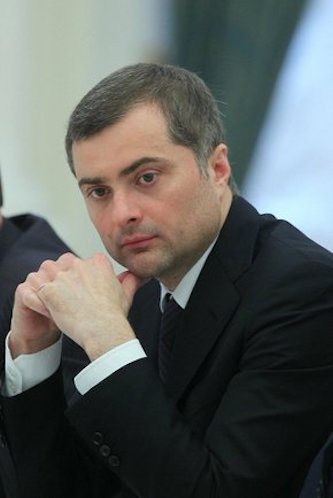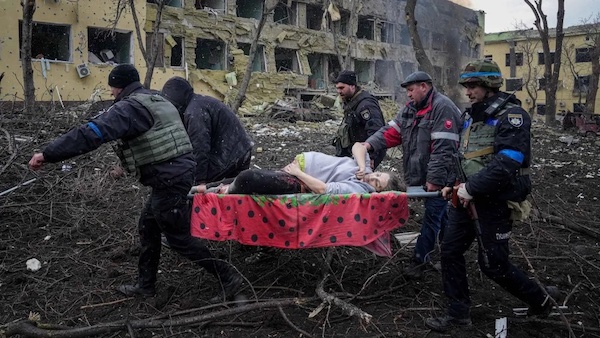Arts Commentary: Perceptions of Putin –“The Wizard” and What Lies Behind the Curtain
By Peter Keough
How well The Wizard of the Kremlin will be received here is an interesting question, especially when the novel is evaluated in the light of Mstyslav Chernov’s visceral documentary 20 Days in Mariupol.
The Wizard of the Kremlin by Giuliano da Empoli. Translated by Willard Wood. Penguin Random House. 297 pages. $16.99.
20 Days in Mariupol, directed by Mstyslav Chernov. Premieres on PBS Frontline, November 21.
 Giuliano da Empoli’s The Wizard of the Kremlin, on the face of it a love letter to Vladimir Putin, does not seem to have aged well since its April 2022 release in France, two months after the Russian invasion of Ukraine. How well the recently published English language version of the book will be received is an interesting question, especially when it is evaluated in the light of Mstyslav Chernov’s documentary 20 Days in Mariupol.
Giuliano da Empoli’s The Wizard of the Kremlin, on the face of it a love letter to Vladimir Putin, does not seem to have aged well since its April 2022 release in France, two months after the Russian invasion of Ukraine. How well the recently published English language version of the book will be received is an interesting question, especially when it is evaluated in the light of Mstyslav Chernov’s documentary 20 Days in Mariupol.
But maybe da Empoli has conjured up a subtle irony that has gone over my head. After all, he ends up employing not one, but two unreliable narrators. The first of these is a shiftless French intellectual passing the time in Moscow ostensibly to research Yevgeny Zamyatin, the early Soviet writer whose We, written in 1920-21, was the prototype for such dystopian novels as Aldous Huxley’s Brave New World (1932) and George Orwell’s 1984 (1949). He finds the book intriguing because the narrative predicts the situation of the present day — “a society governed by logic,” a “global matrix presently under construction … a digital beehive.” Zamyatin, in this interpretation, would seem to be calling for the “red pill” of awareness proselytized by QAnon.
Frankly, being governed by logic would be preferable to the chaos, irrationality, and lies that seem to be the current order of things. The latter are more the purview of the book’s second unreliable narrator, Vadim Baranov. Based on Vladislav Surkov, Putin’s shadowy advisor until he “resigned” in 2020 (he was reportedly placed under house arrest for embezzlement in April 2022), Baranov here has also resigned, but he occasionally resurfaces online under a pseudonym to make cryptic comments about the state of the world. The Frenchman, one of his groupie followers, ventures a fawning reply to one of Baranov’s gnomic tweets, quoting from We to demonstrate his hipness. To the fan’s delighted surprise, Baranov invites him to his luxurious hideaway — a tasteful version of the lairs in Vladimir Sorokin’s Day of the Oprichnik — hidden in the woods outside of Moscow.
There, as in a realpolitik version of Interview With the Vampire, Baranov shares some of his amoral philosophy. Stalin, he asserts, was not “a politician but an artist” and “the first half of the twentieth century was … a titanic confrontation between artists. Stalin, Hitler, Churchill. After them came the bureaucrats, because the world needed a rest. But today the artists are back.”
He adds, “Today … we have reality-show personalities. But the principle is the same.”
To which his interlocutor might have objected that, after a death toll of 100 million or so brought about by such “creative” leadership, maybe we should stick with the bureaucrats? But the groupie doesn’t dare challenge Baranov’s point of view; he doesn’t serve as the voice of reason or provide any counterpoint to his host’s megalomaniacal mediocrity. Instead, the French narrator meekly inquires as to why his new friend had left a position that gave him the opportunity to turn world history into his own slipshod, solipsistic, murderous vanity project. Thus Baranov tells him the story of his life. It is unilluminating, superficial, and badly written.

One of da Empoli’s narrators is based on Vladislav Surkov, Putin’s shadowy advisor until he “resigned” in 2020. Photo: Wiki Common
Born of privilege during the Soviet era, Baranov came of age in the free-wheeling post-communist ’90s, a spoiled aesthete living a life of hedonism and pretension. He falls in love with Ksenia, a “panther, erratic and without mercy, she was at the same time completely defenseless.” One would hope that such purple passages were intended to be taken satirically. Predictably, Ksenia will cheat on him with an up-and-coming oligarch, Mikhail Khodorkovsky, one of several real-life figures in the book. She will reappear in the story, occasionally and pointlessly.
Meanwhile, Baranov meets the true love of his life, Putin, whom he will help finesse into the Presidency, replacing the moribund alcoholic Boris Yeltsin. When Baranov first meets him, Putin is still the drab head of the Federal Security Service (the former of the KGB). He’s a pallid shadow, an apparatchik in a cheap suit. But Baranov will promote this dim image until Putin becomes the screen onto which he and all Russia can project their dreams of greatness. And a dim image Putin remains in The Wizard of the Kremlin. Despite its promises, the narrative offers no further insight into the tyrant’s appeal or power beyond the assessments of Baranov’s off-the-rack nihilism.
By this time Baranov has moved on from the airy conceits of literary life and the theater. He is now exploiting the television industry, floridly described as “the throbbing heart of the new world, which bends space-time with its magic weight and projects the phosphorescent reflection of desire on every side.” He starts out working for TV mogul Boris Berezovsky, whom he will betray in his quest for advancement. He sees Berezovsky as woefully naïve when it comes to creating a brave new world where illusion generates popular support for a virtual dictatorship. He scoffs at Berezovsky’s warnings about his new hero. “Putin is a chekist, Vadya,” his one time friend tells him. “He’ll put Russia in chains. Everything we’ve done in the past few years to become a normal country will go to ruin. You too, Vadya.”
Is Berezovsky the book’s much needed reality principle, the voice that will expose the lies of Putin and his populist fascism? Perhaps, but Baranov dismisses him with a typically banal simile: “His words washed over me leaving no trace, liked a mountain stream over a rock.” It would seem that da Empoli is equally dismissive of Berezovsky’s warning. Like many others in the West, the political essayist turned novelist (this is his first) has been seduced by the dictator’s allure, his will to power, his ruthlessness and authority. (Note: da Empoli is the founding chairman of Volta, a think tank based in Milan and a professor at Sciences Po Paris.) And why not? Until recently Putin has mostly met with success. Who else could have gotten the United States to elect a failed reality TV host as its leader (an achievement disappointingly ignored in the book)?
Things change when Baranov helps orchestrate the 2014 covert Russian invasion of Ukraine to overthrow what he characterizes (in Kremlin propaganda talking points unchallenged by da Empoli) as a phony pro-European regime installed by the CIA. Only then does he begin to express some doubt, his convictions wavering. Visiting the warzone, he meets up with his acolyte Alexander Zaldastanov, the leader of a covert Russian guerrilla unit, and tries to explain to him the cynical strategy behind the operation. Zaldostanov listens, perhaps not comprehending, perhaps understanding too well, then hands Baranov a grimy pink object — a doll with a missing arm.
En route back to Moscow Baranov reflects, “The war in Ukraine had been like everything else. I wasn’t the one who wanted it.… But afterwards, after the tsar made his decision, I’d done everything in my power to see that the war succeeded. Out of habit. Out of pride. And because I could…. Now I finally held the trophy I deserved: a doll, smeared with dirt and rubble, whose name I would never know.”

A scene from 20 Days in Mariupol. Photo: Courtesy of Sundance Institute/AP
Had da Empoli seen 20 Days in Mariupol before he wrote his book he might have made his protagonist a bit more contrite. The director of the film, Mstyslav Chernov, was part of an AP news team who were among the last journalists in the title city during the 2022 Russian siege. Determined to bring the truth to the world, they would head to the areas of greatest danger to film what was happening. Then, as the links to the city shut down, they would search for the few remaining spots with internet connections to send out their reports. Over the course of 20 days they would shoot 30 hours of footage of death, terror, and destruction but could manage during that time to transmit only 40 minutes to the outside world.
The first casualty seen in the film is a dead cat. Then come the shattered homes, the mass graves, the maimed, the dead, the mourners, the dying children.
Not everyone is happy to see the journalists. “Fuck you, prostitute,” says a man fleeing the city as the first bombs fall.
But most approve of what they are doing. “Show this Putin bastard the eyes of this child and all the doctors who are crying,” says a medic in a hospital ER trying to save the life of a four-year-old. “Show it. It is good the press is here. Keep filming.” And so they do, shooting even after the rescue efforts cease. They linger on the tiny body, now abandoned and still, covered by a sheet on a gurney with blood pooled on the floor beneath.
At another hospital a doctor tells them to film as victims of a bombardment are rushed in. He guides them through rooms full of screaming, bleeding people, pausing at a father wailing over his dead son, a 16-year-old caught in a barrage while playing soccer. A bloody sneaker lies on the floor. Both the boy’s legs had been blown off. Days later, as they film corpses gathered for mass burials, Chernov recognizes the bloodstained sheet that had covered the boy. His body is dumped in a long trench filled with the dead. “Somewhere among these black bags,” says Chernov, “lie the other children we have filmed.”
A baby is carried in. Efforts to save him fail. The mother shouts, “Why? Why?” He was 18 months old.
A maternity hospital has been bombed. They arrive and witness the wreckage, the demolished wards. A bed is covered with broken glass and soaked with blood. They film the victims being extracted from the ruins, including a pregnant woman brought out on a stretcher, a gruesome wound gaping on her hip. After a frantic but successful search for an internet connection, these images finally appear on news broadcasts around the world, belying, yet again, Russian claims that they do not target civilians.
Later, the disinformation agencies of the Kremlin, the kind of people that Baranov in The Wizard of the Kremlin would have been in charge of, go to work spinning the coverage. These were not actual victims, they claim, but crisis actors. No hospital was bombed. It was all fake news. Appalled, Chernov decides to track down the woman whom he interviewed to prove that she existed, that she was a casualty, that the bombing, a war crime, did in fact happen. He is successful: he learns that the woman was transferred to another hospital where her child was stillborn and she died of her wounds.
With all the routes out of the city closing it becomes obvious to Chernov and his colleagues that if they are captured the Russians will try to force them by whatever means necessary to deny the validity of their coverage. “I have no illusions what will happen to us if we are caught,” he says. A last Red Cross caravan is being organized to evacuate those fleeing the city. Will they make it there in time to escape?
Chernov’s voiceover narrative relates the facts dispassionately, his neutral language underscoring the extremity of what he observes. He can’t help these people in any way other than by showing what they suffer and asking them to tell their stories.
“This is painful to watch,” he insists. “But it must be painful to watch.”
Peter Keough writes about film and other topics and has contributed to numerous publications. He had been the film editor of the Boston Phoenix from 1989 to its demise in 2013 and has edited three books on film, most recently For Kids of All Ages: The National Society of Film Critics on Children’s Movies (Rowman & Littlefield, 2019).
Tagged: 20 Days in Mariupol, Giuliano da Empoli, Mstyslav Chernov, The Wizard of the Kremlin

The irony in The Wizard is hardly subtle. Nor was lost on other reviewers. I found this fictionalized portrait of a real-life apparatchik hardly ‘in love’ with Putin, but turned on by the power game) fascinating, and illuminating about how Vladimir became the Putin we have now.
The NYT begs to differ. https://www.nytimes.com/2023/01/21/world/europe/france-putin-wizard-kremlin-da-empoli.html
Constant Meheut’s article is not a review, nor meant as one, but it is an entertaining pot-stirrer, pointing out that different Frenchpersons have differing opinions about the book. (O mon Dieu!) The Wizard came within a hair of winning the Goncourt. Meheut quotes only two of the posited ‘critics and detractors.’ Neither of them are literary critics, btw. I would sincerely not wish anglophone readers to be turned away from this book, at least not until they’ve read this review from the Financial Times.
I’d suggest watching 20 Days in Mariupol instead.